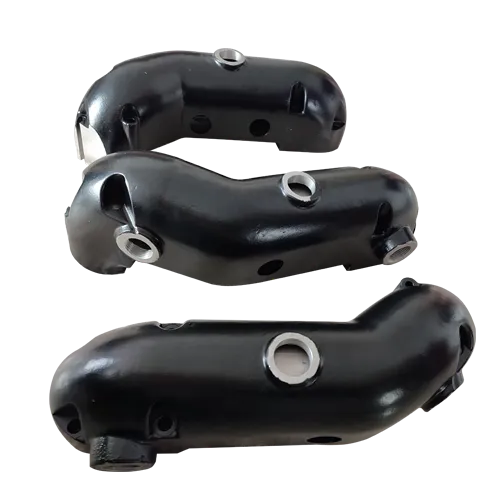Mobile:+86-311-808-126-83
Email:info@ydcastings.com
folding impeller
The Innovation of Folding Impellers in Fluid Dynamics
Folding impellers have emerged as a revolutionary advancement in the field of fluid dynamics, significantly enhancing the efficiency and functionality of various fluid transport systems. With their unique design and operational characteristics, folding impellers are transforming industries that rely on effective fluid movement, including aerospace, marine engineering, and HVAC (Heating, Ventilation, and Air Conditioning) systems.
Understanding Folding Impellers
Traditionally, impellers are devices that impart motion to fluids; they are crucial components in pumps, turbines, and fans. However, the advent of folding impellers introduces an innovative mechanism that allows for both efficient fluid movement and space-saving advantages. These impellers feature blades that can fold during operation and expand when needed, thus optimizing their performance based on the specific requirements of the system.
The folding design enables the impeller to adjust its surface area and shape according to the fluid flow conditions. This adaptability can result in improved efficiency, decreased energy consumption, and reduced noise output—all critical factors in system design.
Advantages Over Conventional Designs
One of the most significant benefits of folding impellers is their enhanced efficiency. Traditional impellers operate at a fixed geometry, which may not be optimal under varying flow conditions. In contrast, folding impellers can modify their configuration, allowing for better fluid dynamics and reducing the losses associated with turbulence and drag. This adaptability can lead to considerable energy savings over time, a crucial aspect in industries focused on sustainability and operational cost reduction.
Moreover, folding impellers can also contribute to a reduction in physical size and weight. By folding away when not in use, these impellers can minimize the space they occupy, making them ideal for compact applications such as drones or portable pumps. Their lightweight design, in turn, facilitates easier transportation and installation, further enhancing their versatility in different environments.
folding impeller

Applications Across Industries
The applications of folding impellers are vast and varied. In aerospace, they can be used in small drones to improve efficiency during flight. By adjusting their shape based on the speed and altitude, these impellers can optimize lift and thrust, contributing to longer flight times and better overall performance.
In marine engineering, folding impellers are becoming increasingly popular in underwater vehicles and vessels. The ability to fold away when not in motion allows for more streamlined designs, reducing drag in the water and enhancing fuel efficiency. This feature is particularly beneficial for submersible vehicles that operate in varying depths, where changing conditions necessitate adaptable propulsion systems.
In the HVAC industry, folding impellers can lead to improvements in air circulation systems. By enhancing the airflow and reducing energy consumption, these impellers can help achieve better climate control in buildings, leading to both comfort and cost savings.
Future Prospects
The future of folding impellers holds great promise, with continued advancements in materials and engineering techniques. As industries increasingly prioritize energy efficiency and sustainability, the demand for innovative solutions like folding impellers is likely to grow. Research is ongoing to develop even more sophisticated designs that can further enhance their performance and applicability across various sectors.
In conclusion, folding impellers represent a significant step forward in fluid dynamics technology. Their unique ability to adapt to changing conditions while providing greater efficiency opens up new possibilities in multiple industries. As we continue to explore their potential, folding impellers are poised to become a vital component of modern engineering solutions.
-
Why Should You Invest in Superior Pump Castings for Your Equipment?NewsJun.09,2025
-
Unlock Performance Potential with Stainless Impellers and Aluminum End CapsNewsJun.09,2025
-
Revolutionize Your Machinery with Superior Cast Iron and Aluminum ComponentsNewsJun.09,2025
-
Revolutionize Fluid Dynamics with Premium Pump ComponentsNewsJun.09,2025
-
Optimizing Industrial Systems with Essential Valve ComponentsNewsJun.09,2025
-
Elevate Grid Efficiency with High-Precision Power CastingsNewsJun.09,2025











